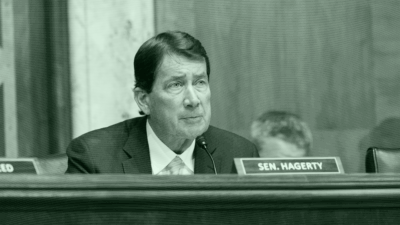Trump DOL Expected to Abandon Fiduciary Rule, Again
The Department of Labor was granted a 60-day pause by a federal judge to review its appeal in two court cases.
Sign up for market insights, wealth management practice essentials and industry updates.
The Trump 2.0 administration is expected to ease up on everything from crypto enforcement to showerhead flow rates. Soon, it could also impact how Americans receive retirement advice.
Last week, a federal judge for the US Fifth Circuit Court of Appeals granted the Department of Labor a 60-day pause in its appeal process regarding the 2024 Retirement Security Rule, also known as the Fiduciary Rule. Finalized under the Biden administration, the rule aimed to expand the definition of “fiduciary” to include more retirement advisors, but was blocked by a federal judge in Texas in July after facing lawsuits from multiple financial services groups. While Biden’s Labor Department appealed that decision, the Trump administration may opt to accept the original ruling. The latest stay will give new political appointees at the agency time to plan their next move.
“For many of the lifers, and the non-political appointees, who have been at the DOL for a long time, this is their baby,” said Rob Sichel, a partner at the K&L Gates law firm, adding that new political appointees will likely abandon the appeal.
Back to the Future
After a lengthy back-and-forth history that dates back to the Obama administration, the latest pause was expected by experts, who believe the outcome will look a lot like it did under the first Trump administration. This latest iteration of the rule has been highly disputed:
- Nine insurance trade groups sued the Labor Department in May, arguing the rule was flawed and unconstitutional, similar to the failed 2016 rule.
- In June, the Financial Services Institute (FSI) and the Securities Industry and Financial Markets Association (SIFMA) filed another lawsuit, claiming the rule would limit investors’ access to advice and education.
One of the most material financial decisions many people will make in their lives is whether to roll over their workplace retirement plan to an IRA and hire an advisor, Sichel said. “At the heart, it’s a rollover rule,” he told Advisor Upside.
Clients’ Best Interest. Despite the rule likely not coming to fruition yet again, Sichel said many in the wealth management industry are already holding themselves to a higher fiduciary standard. “Most advisors want to do the right thing for their clients, regardless of litigation.”












